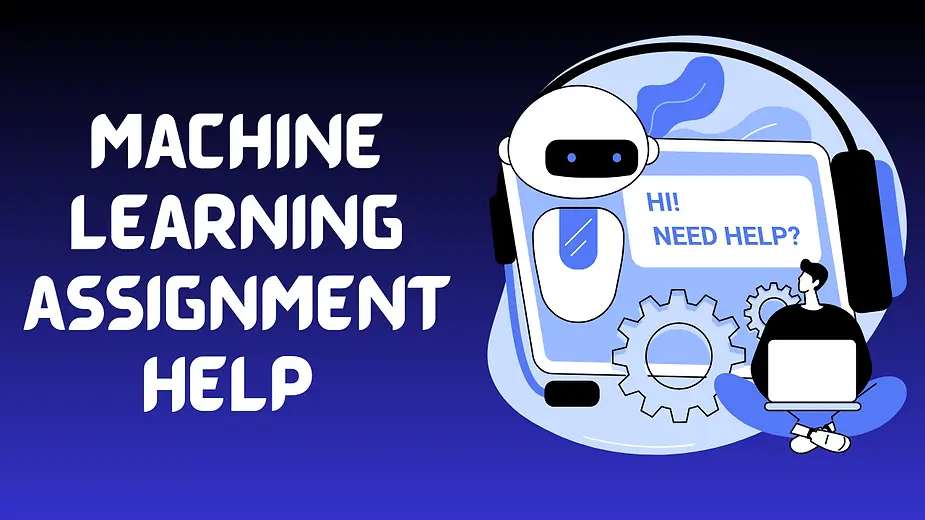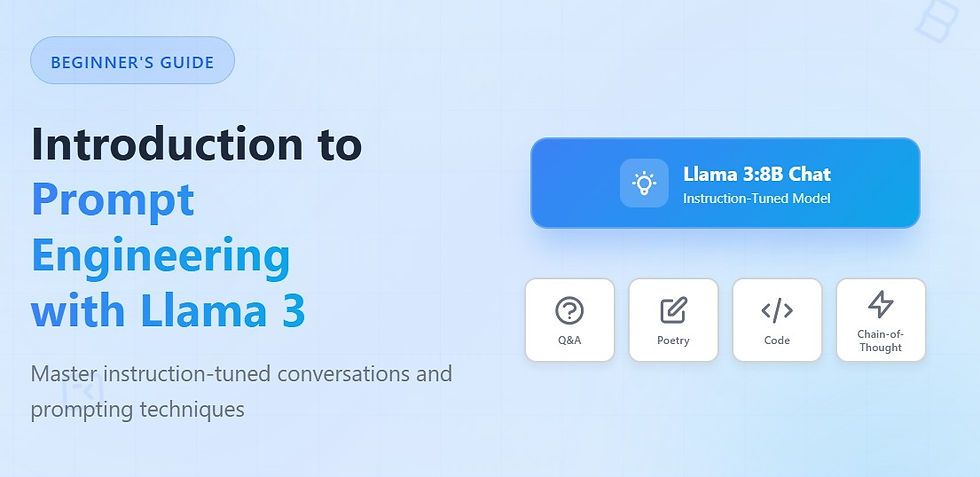Introduction to Meta-Learning | Codersarts
- ganesh90
- Jun 17, 2023
- 4 min read
Updated: Jan 16, 2024

Meta-learning refers to the concept of acquiring knowledge about the learning process itself, particularly in the context of machine learning. In a machine learning project, the objective is often to determine the most effective algorithm for a given dataset. Meta-learning algorithms learn from the results produced by other machine learning algorithms.
Key concepts:
Traditional Machine Learning Algorithms
Traditional machine learning algorithms learn by analyzing historical data and generating a model. This model can then be used to make predictions for new instances. They directly learn from the data and establish mappings from input patterns to output patterns, enabling them to address classification and regression problems.
Meta-Learning Algorithms: Learning from Outputs
In contrast to traditional machine learning algorithms, meta-learning algorithms learn from the output produced by other learning algorithms. They utilize the output of existing algorithms as input and make predictions based on this information. Meta-learning operates at a higher level than machine learning, optimizing the utilization of predictions generated by machine learning algorithms to make predictions.
Meta-Learning Algorithms and Meta-Models
Meta-learning algorithms, also known as meta-algorithms or meta-learners, are designed to learn from the output of other learning algorithms. They can be specific to classification or regression tasks and are trained on the output of pre-trained learning algorithms. Once trained, a meta-learning algorithm produces a meta-model, which contains specific rules, coefficients, or structures learned from the data, and can be used to generate predictions.
Stacking: A Well-Known Meta-Learning Algorithm
One well-known meta-learning algorithm is stacking, which is a form of ensemble learning. Stacking combines predictions from multiple machine learning models by utilizing a meta-model to learn the optimal way of combining these predictions. It involves training base classifiers, generating their classifications, and using a meta-classifier to perform the final classification based on these results.
Other Ensemble Learning Algorithms and Meta-Models
In addition to stacking, there are other ensemble learning algorithms that employ meta-models to determine the best way to combine predictions from multiple machine learning models. For example, the mixture of experts algorithm utilizes a gating model (i.e., the meta-model) to learn how to combine predictions from expert models. These algorithms aim to identify reliable classifiers and optimize the combination of their outputs.
Meta-Learning as Model Selection and Tuning
Meta-learning can be seen as model selection and tuning, where the goal is to find the best data preparation procedure, learning algorithm, and hyperparameters to achieve the highest performance. Traditionally, this optimization process is carried out by humans. However, automated machine learning (AutoML) algorithms can also utilize meta-learning to automate the selection and tuning process, making state-of-the-art machine learning approaches accessible to domain scientists.
Automated Machine Learning (AutoML) and Meta-Learning
AutoML, which automates the process of machine learning model selection and hyperparameter tuning, can utilize meta-learning techniques. AutoML algorithms learn from the performance of different machine learning approaches across various learning tasks, or meta-data, to accelerate the learning process for new tasks. Although not explicitly classified as meta-learning, AutoML algorithms leverage meta-learning concepts to improve the efficiency of model selection and tuning.
Learning to Learn: A Related Field to Meta-Learning
Learning to learn, sometimes informally referred to as meta-learning, is a closely related field. It involves algorithms that improve their performance and adapt across multiple tasks through experience. Instead of developing separate algorithms for each task, learning to learn algorithms focus on acquiring generalizable knowledge and skills that enhance their future learning performance.
Multi-Task Learning: Meta-Learning Across Tasks
Multi-task learning is a form of meta-learning where algorithms learn from multiple related tasks to enhance their future learning performance. By leveraging the commonalities and shared information among tasks, multi-task learning algorithms can improve their ability to generalize and perform well on new, unseen tasks.
Summary: Acquiring Knowledge through Meta-Learning
Meta-learning involves acquiring knowledge about the learning process itself. In machine learning, it refers to algorithms that learn from the output of other learning algorithms. Meta-learning algorithms, such as stacking, utilize a meta-model to combine predictions from multiple models. Meta-learning can also be applied to model selection and tuning, and it is closely related to learning to learn and multi-task learning.
Our team of AI / ML are experts in demystifying the intricacies of Meta Learning. We offer a full range of oasis-like solutions to quench your thirst for knowledge and success:
One-on-One Tutoring: Get personalized guidance from experienced Meta Learning masters. They'll break down complex concepts into bite-sized pieces, answer your burning questions, and ensure you truly grasp the magic behind the algorithms.
Custom Assignment Solutions: Stuck on a particularly gnarly problem set? We'll craft tailored solutions that showcase your understanding while following academic integrity guidelines. No need to stress about deadlines,focus on learning and excelling.
Guided Learning Projects: Take an active role in your Meta Learning journey. Our experts will guide you through real-world projects, applying your newfound knowledge to practical problems and solidifying your grasp of the material.
Research Paper Powerhouse: Need a research paper that shines brighter than a thousand neurons? Our team will help you navigate the research landscape, formulate compelling arguments, and craft a masterpiece worthy of any professor's applause.
- Don't waste time on Meta Learning assignments. Get personalized help and boost your grades.
- Focus on understanding, not the deadline. Get Codersarts' Meta Learning experts on your side.
- Ace your Meta Learning assignment with expert help! Get a free quote today.
- Struggling with Meta Learning concepts? Let Codersarts guide you to success.
If you need help in machine learning, feel free to contact us.




Comments